-
End Labour Violations in Adult EntertainmentMeeting the three demands of our petition would help combat the labor exploitation and sometimes outright trafficking endemic within venues in adult entertainment in New Zealand. The reasoning for our demands are further explained below, but more information can be found on our website www.firedupstilettos.com, and on Employment New Zealand’s website. 1) As is clearly outlined in Employment New Zealand’s guide for determining whether someone is an independent contractor or employee, independent contractors have control over our working hours, control over services we provide and how we provide them, and may work for multiple principles at the same time. We have collected contracts from numerous adult entertainment venues in Aotearoa New Zealand which violate our independent contractor status by proposing dancers pay exorbitant fines for not being at work at a time management decides, or leaving before management wants us to. They have introduced fines that compel us to take our underwear off at a certain time on stage, and keep it off while walking around to collect tips. The most egregious fees prohibit “rudeness” (as determined solely by management) toward management or customers, and “demanding” customers pay us for our labour (also known as asking for a tip–one of the only ways we get paid). The contracts also compel a dancer to agree not to provide services of a similar nature to any third party, allowing them to monopolize and control our labour. These clauses create an atmosphere of dictatorial control by management over dancers that violates our status as independent contractors. We are willing to sacrifice labour security in order to have freedom–we will no longer tolerate having neither. 2) The use of fines and bonds is a standard tactic used by adult entertainment venues in order to coerce compliant behavior from dancers, and they promote self-evident power imbalances that can range from inconvenience to outright labour trafficking. This labour trafficking can occur when dancers are fined by management for a larger amount than they have actually earned, meaning they then owe their employer (who is the one with the power to implement the fine) payment on this debt. Some clubs claim this never happens, which is both untrue and beside the point: the fact that we are afraid it will happen means management is in a position of incredible coercive control, which is dangerous. Although this is in no way unique among venues in our industry, we have included an example of Calendar Girls Wellington’s contract, including the detailed fines. These fines make us afraid. We are afraid to stand up to management for fear of losing all our income, and afraid to stand up to customers who violate our boundaries for fear we will be blamed and go home owing the club money because we dared say no. All fines are coercive and unethical, but threatening dancers with such a huge fine for “rudeness” toward a customer in particular is a safety issue that increases our likelihood of experiencing sexual violence at work: an integral part of any kind of adult entertainment is being able to decide our own boundaries over our own bodies, and which customers we do business with. Coercion and exploitation in adult entertainment is not inherent to the work, but rather to business practices that control when, how, and with whom we do it. 3) As previously stated, independent contractors do not receive a wage: dancers only make what we earn from private dances and tips. In order to gain the right to work in a club, we give a percentage of our earnings to the venue; the proportion of this split has continued to increase in favor of the clubs, creating a condition in which dancers are working more for a smaller percentage of the fee. There is currently no regulation on how much venues can take from us, which has led to what we allege are unfair conditions. The percentage taken by the venue varies throughout adult entertainment in New Zealand, but many extract anywhere from 50-60% of the list price for services (meaning we only earn 39.6%-50% of what the customer has paid for our services), and 20% of tips (meaning we keep 80% of the tips customers give us). We think this division is deeply unfair, but since there are few adult entertainment venues in each city, the clubs are able to set prices so we aren’t able to seek better conditions in another venue. We need industry regulation that sets a limit on how much venues can extract from our profits: we propose the venue is not allowed to take more than 35% of the list price for services, and no more than the 20% already in place for tips.3,366 of 4,000 SignaturesCreated by NZ Dancer Collective
-
Urgent call for FREE cervical screening!The National Screening Unit is currently planning for the upcoming HPV cervical screening programme, due to start later this year. This will be the ONLY national health screening programme not fully funded by the Government. To ensure costs for screening and follow-up tests are not barriers, we are calling for a fully funded, equitable screening programme. This includes FREE screening and follow-up, diagnosis, and treatment. Unless urgent action is taken by the Government to change what is proposed, there will be preventable deaths from cervical cancer. Whānau need their kuia, taua, māmā, whaea and tamāhine, to flourish. No one should die of this preventable cancer. Please sign and share this petition - ngā mihi. On behalf of the many who want this change, those who are undergoing treatment, and in memory of those who have tragically lost their lives to this cancer. This petition is supported by Mana Wāhine, Te Tātai Hauora o Hine (National Centre for Women's Health Research Aotearoa), Hei Āhuru Mōwai Māori Cancer Leadership Aotearoa, the Royal Australian and New Zealand College of Obstetricians and Gynaecologists, the New Zealand College of Primary Health Care Nurses, Tū Ora Compass Health, Family Planning New Zealand, the Public Health Association of New Zealand, The New Zealand College of Sexual and Reproductive Health, Dr Hinemoa Elder, Mayor Tory Whanau, The Cause Collective, Lingy Noiid, and Te Awakairangi Health Network. Please note, in addition to individual signing, endorsement from organizations is welcome and can be detailed above. More information can be found at: https://www.heiahurumowai.org.nz/_files/ugd/b7edfc_621f3417d3b84349be2ed6372d479d30.pdf https://www.heiahurumowai.org.nz/_files/ugd/b7edfc_55f99468f6b44586af3462171d8f0902.pdf3,895 of 4,000 SignaturesCreated by Ande Childerhouse
-
Amnesty for OverstayersEstimates are that Aotearoa has approximately 14,000 people without any visas or legal status. These are migrants, their whānau and tamariki who have been living in fear during some of the worst challenges we have faced as a country. They are victims of our regressive immigration policies, not criminals. Overstayers deserve to lead a life with dignity and respect. They deserve to be safe and deserve to be helped, especially during hard times like the Northland floods and Cyclone Gabrielle. With the current system, overstayers have hesitated to seek medical help such as covid tests and covid vaccination, for the fear of being reported to authorities and subsequently being deported. And now many of them are flood victims afraid of seeking assistance provided by the government. This is potentially a dangerous and unsafe health situation, not just for the victims but for the entire communities surrounding them. Many of our overstayers are children of parents who do not have lawful status. It is harsh and unfair to punish the children by depriving them of access to needed services such as health care providers, education and safety services. Researchers at UNITEC published an excellent report highlighting the plight of overstayers and their families – the stresses are multi-fold and affect their mental well-being. The solution proposed by researchers is also policy change and legal status for the overstayers. Link to the full report: https://www.unitec.ac.nz/sites/default/files/public/documents/Tuvalu%20project%20report%20-FINAL-13.12.2021.pdf An amnesty for all overstayers regardless of their country of origin is the need of the time.While we appreciate that the Prime Minister is going to look at the petition regarding Pacific overstayers, he needs to be inclusive and act sooner than later. We ask the Prime Minister to give overstayers work rights and their children access to public education, allowing them to lead a life of dignity.1,145 of 2,000 SignaturesCreated by Anu Kaloti
-
Save Auckland CABs!The service provided by Auckland CABs is absolutely essential – something that is even more apparent in times of crisis. With the recent floods and the ongoing challenges of daily life, Auckland CABs are helping people with information and advice and connecting them with the support they need. Last year our dedicated volunteers in Auckland CABs helped more than 160,000 people. Auckland Council is proposing to significantly cut or even remove all funding from CABs in Auckland in its budget for 2023/24. This could result in the complete closure of the CAB service, which has been serving Tāmaki Makaurau for over 50 years. Let Auckland Council know that they should not cut funding to Auckland CABs.22,576 of 25,000 SignaturesCreated by Sacha Green
-
Let Coast Road people have their say! Publicly notify any consent to mine in Barrytown.A proposed venture to start mining the Barrytown flats could lead to a decades-long industrial operation in this beautiful area of the West Coast. Despite the company and council's claims to the contrary, a venture of this size and scale could have many more than minor adverse effects on the community and environment including: * All of us who live and have businesses along the scenic Coast Road. * The environment: particularly birds, wetlands and the vulnerable coastal zone with a high-water table. * Highway safety for all, residents and visitors; along the narrow Coast Road. * The reputation and enjoyment of the Coast as a tourist destination. Therefore, the GDC and WCRC should adhere to democratic process and allow the affected parties to at least be heard. PUBLICLY NOTIFY any consent to mine here!277 of 300 SignaturesCreated by Coast Road Residents
-
Tiakina tō tātou hau / Save our airMāori have deep seated beliefs of the natural world, that it has a spiritual mauri. This is why we had and still have entities that represent these natural resources. None of the RMA consents ever take this aspect of our beliefs into account. And now the Mauri of nature of Papatuānuku (earth) and Ranginui (sky), Tangaroa (sea), Tāne Mahuta (Forest) is dying, And we will also eventually die because of this. Māori suffer high rates of respiratory illness, cancer and early death not to mention ill mental health because of the systematic barrage of pollution of nature. Everyone will suffer mental illness because nature is dying. This pyrolysis plant will destroy our quality of air, land and waterways through its discharges and waste residue such as charcoal and slag. Thereby creating an unsafe environment for our descendants. We have a lot of polluting factors in this area such as a high volume of traffic and fumes, industrial waste, stench coming from the slaughter houses and their waste, a Pyrolysis plant will add to that pollution as it will be burning plastic as well. The plant needs to have a continuous feedstock which means all the rubbish from the lower North Island will be coming to Feilding! We want an environment now and into the future that is as healthy and sustainable as possible. The barrier to our success is the Horizons regional council and their consenting of such permits. They hear our submissions and our protest but go ahead with their various projects. None of which actually benefit tangata whenua. The other barrier is that the Council which should be listening to ALL of its constituents are putting money and profit before people and the need and want to preserve what we have for future generations. It is urgent because the plant itself is being built and the last piece of the puzzle (the emissions to air permit) is under consideration right now. We do have a time to put in our objections via submission but there is no guarantee that we will win. There is an urgency to pull out all the stops. The impact of your action will allow us to investigate and implement a Zero waste management operation, that will benefit our community via jobs for locals, encourage people to be conservative with their waste, to recycle, re-use , and repurpose. We would have repair cafes which encourage reusing furniture and so on instead of continually throwing unwanted items away.. It will also only deal with our local waste, not everyone's in the bottom of the North Island. Your help will make all the difference.405 of 500 SignaturesCreated by Mereti Taipana
-
Press Pause on the Charities Act changesThe charities sector, accountable first to the communities of Aotearoa, plays an important independent role in our democracy. With over 28,000 registered charities in New Zealand, the Charities Amendment Bill will have a far reaching impact in the for-purpose (aka the ‘not-for-profit’) sector. It has been asked whether the Charities Amendment Bill is a ‘wolf in sheep’s clothing’. While some elements of the Bill are helpful and look good, the devil is in the detail. Government says the Bill will ‘modernise’ the Charities Act 2005. In fact, much of the Bill ensures greater Government control of the charities sector, reduced sectoral independence, and a reduction thereby of the sector’s essential contribution to democracy. It was Labour Party policy for the 2017 election to “prioritise the long-promised first principles review of the Charities Act”. This would include ensuring that charities can engage in advocacy without fear of losing their charitable status. The Minister now says this review is not needed. Any legislation impacting on this sector needs to provide an enabling framework rather than one that restricts the sector from being a voice for its communities. This will be the last chance for the Act to be independently reviewed for many years to come. The petition can be signed by an individual or an organisation, or by both, separately. Please complete this signing by midday on 8th December, so it can be submitted to the Select Committee in time. We encourage you to make your own submission by emailing the Select Committee directly at [email protected] or using this online form on the Parliament website: https://www.parliament.nz/en/pb/sc/make-a-submission/document/53SCSS_SCF_BILL_127163/charities-amendment-bill258 of 300 SignaturesCreated by Tim Howard
-
Include the queer community, women and disabled people under hate speech law changesIn 2022, there have been numerous attacks on the queer community. An arsonist burned down the Rainbow Youth drop-in centre in Tauranga. Gloria of Greymouth, a pink queer church, was vandalised with anti-queer and religious symbols. The owner of Woof!, a queer bar in Dunedin, received two anonymous death threats through the bar's social media account and messages from Freedom and Rights Coalition leader and Destiny Church pastor Derek Tait, of Christchurch, including an image of Tait pointing at the bar. Hours after the Labour Party announced that it will exclude the queer community from protection under hate speech laws, a 22-year-old gunman entered Club Q, a queer nightclub in Colorado, and immediately opened fire, killing at least five people and injuring 25 others. In 2017, an Auckland pastor Logan Robertson said he was "not against [gay people] getting married as long as a bullet goes through their head the moment they kiss". That statement will remain legal under the government's changes to hate speech laws. Are we waiting for a mass shooting inspired by homophobia and transphobia to transpire at a New Zealand queer bar before we protect queer people from hate speech that incites violence? How many lives will it take before the government protects us? There is well-documented hatred against queer people to necessitate the protection of queer people under hate speech laws. The government's failure to do so will embolden homophobic and transphobic groups, extremist religious groups, and right-wing groups to incite violence against queer people. The government must protect the queer community, women and disabled people under the hate speech law. https://www.stuff.co.nz/national/crime/129122700/man-admits-antisemitic-and-homophobic-attack-on-west-coasts-pink-church https://www.nzherald.co.nz/nz/destiny-church-pastor-accused-of-intimidation-after-posing-outside-queer-friendly-bar-in-dunedin/SXLGUMQ6Y5LO6SZEOWNW4ZQ3DM/ https://www.stuff.co.nz/bay-of-plenty/300700598/pair-plead-guilty-to-burning-down-rainbow-youth-building https://www.newsroom.co.nz/nzs-hate-speech-laws-explained https://www.stuff.co.nz/national/politics/300743361/hate-speech-reforms-drastically-watered-down https://www.theguardian.com/us-news/2022/nov/20/people-killed-shooting-at-colorado-springs-nightclub10,544 of 15,000 SignaturesCreated by Shaneel Lal
-
Take seven steps toward a fairer future for all of usNo matter who we are or where we live, everyone deserves a fair go. When we have the things we need like a roof overhead, kai on the table, and support around us, we can build great lives for ourselves and our whānau. During the pandemic, wealth has been further unfairly concentrated in the hands of just a few. As corporations - like banks, supermarkets, and energy companies - brag to their shareholders about record profits, prices rise dramatically for basics like food, rent, and petrol. [1] Private companies have cashed in on the Covid crisis, generating record profits for them and record hardship for many of us. We had a long period of high housing costs and low wages before COVID hit our shores. Successive governments had chosen to underinvest in services that support wellbeing - like public housing and income support. With inflation rising, hundreds of thousands of tamariki across Aotearoa are living within the constraints of poverty, despite their parents’ best efforts. These seven steps are a circuit breaker for people and whānau whose lives have been most disrupted by the cost of living crisis and the pandemic. Parents, workers, carers, and learners on low incomes - whether they are currently working or not - who are doing their best to provide for themselves and their loved ones. They’re backed by 40 groups who work for all families to thrive. These are tangible steps people in government can choose to take to unlock families from poverty. They’ve been developed by the Fairer Future coalition which is made up of communities, and organisations working and living on the frontlines of poverty, and those who support and serve them. [2] The first three steps are about ensuring everyone has a liveable income - backed by research on what a liveable income is right now - including an increase to the disability allowance to ensure ongoing costs for disabled people are covered. [3] The other steps are changes to policies and practices to make sure everyone can live with dignity: Making sure people can get into relationships without their incomes getting cut. - Removing sanctions - where benefits are reduced, suspended or cancelled, often for confusing, arbitrary, or demeaning reasons. - Wiping debt owed to the Ministry for Social Development that’s often accrued by the Ministry making mistakes in their payments due to the complexity of the system. [4] - Improving supplementary assistance and urgent grants to make sure people have what they need to cover ongoing costs like rent, and help through times of hardship. The Seven Steps work in tandem to ensure everyone can participate fully in society. They will create a welfare system we can be proud of for supporting our communities through economic shocks - like the pandemic and climate crisis - and recognising everyone for their worth. When people have to choose between rent, warmth, and food, our society is out of balance. Now’s the time for the Government to build a fairer future for all of us by taking these steps. Our wellbeing is interconnected; when everyone in our communities has what they need, we all flourish. References and further reading: 1. Banks, energy companies post huge profits as households struggle. 1 News, 25 August 2022: https://www.1news.co.nz/2022/08/25/banks-energy-companies-post-huge-profits-as-households-struggle/ 2. The Seven Steps for a Fairer Future report. Fairer Future, May 2022: https://fairerfuture.org.nz/seven-steps-for-a-fairer-future 3. What are Liveable Incomes in 2022? Fairer Future, March 2022: https://fairerfuture.org.nz/liveable-incomes-2022 4. Welfare debts pushing thousands into ‘poverty trap’. NZ Herald, December 2021: https://www.nzherald.co.nz/nz/politics/welfare-debts-pushing-thousands-into-poverty-trap/EPGLUQODX56EEZLFNY7XLXV2ZI/3,563 of 4,000 SignaturesCreated by Fairer Future

-
Decriminalize Psychedelic DrugsIn New Zealand, possession, use, and social supply of psychedelic drugs carries the same penalty as drugs such as heroin, methamphetamine, and cocaine. Neither LSD, DMT, nor magic mushrooms are physically addictive, with no withdrawal symptoms and mellow comedowns. in addition to this, they're also nearly impossible to overdose on, and both (especially mushrooms) do not negatively impact physical health, provided they are taken correctly, in a controlled setting, and are pure LSD/mushrooms. People found in possession of LSD, magic mushrooms, or DMT are currently faced with up to an $1000 fine, or up to 6 months in prison. Decriminalizing and providing education on psychedelics would not only be more appropriate, given the evidence of the nature of both drugs, but would also mean no charges for those found in possession of these drugs, who tend to be predominantly young, male, and Māori. . An overwhelming amount of evidence clearly shows that punishment and convictions for drug users don’t decrease drug use. In truth, New Zealand’s current drug laws are fuelled by stigma, marginalization and are focused on punishment rather than education and rehabilitation. Sources: https://www.discovermagazine.com/health/classic-psychedelics-arent-addictive https://www.drugfoundation.org.nz/policy-and-advocacy/drugs-and-criminal-justice/ https://thelevel.org.nz/drug-information/psilocybin-mushrooms/ https://thelevel.org.nz/drug-information/lsd/ https://www.medicalnewstoday.com/articles/306889#risks https://www.vox.com/2015/7/24/9027363/acid-lsd-psychedelic-drugs112 of 200 SignaturesCreated by Meredith Bowler
-
End Israel's travel discrimination against New ZealandersNew Zealand and Israel have a reciprocal visa-free entry for their citizens. Before the new rules, all New Zealanders could travel to Israel visa-free and subsequently enter the occupied Palestinian West Bank (entry is controlled by Israel). Under the new rules which came into effect on October 20th, New Zealand citizens with dual citizenship from five countries, including Jordan (about 60% of Jordan’s population is of Palestinian origin), will not be allowed to visit the occupied West Bank under any circumstances, while other New Zealanders will still be able to. The new Israeli imposed travel rules create two unequal classes of New Zealand citizens on the basis of their national origin, which is an unlawful discrimination according to New Zealand’s basic rights and freedoms. The discriminatory rules have devastating impacts on the Palestinian community in Aotearoa. The rules mean we can no longer visit our whenua in the occupied West Bank, a privilege that all other New Zealanders have. Many Palestinian kiwis have family in West Bank, and they can no longer visit and see them, a situation which will further separate and isolate us and our people in West Bank. This is a petition addressed to the Government of New Zealand, to support our demands to take effective actions to end Israel's discriminatory entry rules, and freeze the reciprocal visa free entry arrangement with Israel in the meantime as it is in breach of New Zealander's basic rights and freedom to be protected from unlawful discrimination. ngā mihi, A group of Palestinian New Zealanders To learn more about the new West Bank entry rules: https://amp.theguardian.com/world/2022/oct/20/israel-imposes-strict-rules-on-travel-to-west-bank415 of 500 SignaturesCreated by Palestinians in Aotearoa Coordination Committee

-
Make other votes count Whangarei - Change to the single transferable vote systemOur Whangarei local body elections currently use the First Past the Post (FPP) voting system. If the candidate we vote for does not make the threshold, our votes are "wasted". The Single Transferable Vote (STV) system will allow us freedom of choice to rank our candidates and still elect someone in of our choice without "wasting" votes. When our votes are guaranteed to count like this, vote wastage and vote splitting is eliminated.7 of 100 SignaturesCreated by Fiona Green

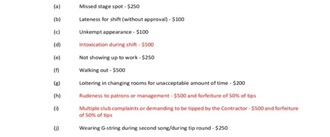.jpg)

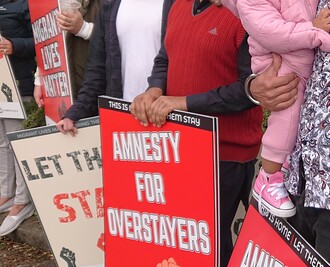
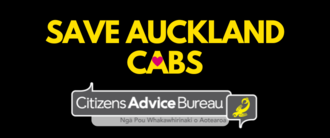.png)


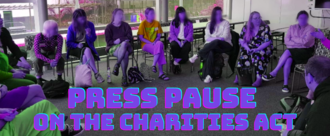
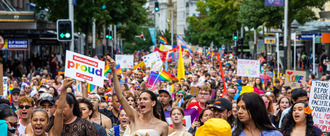
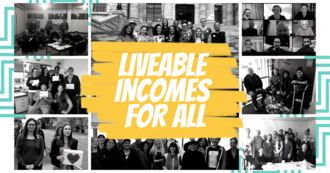.png)


